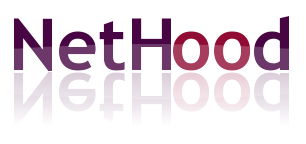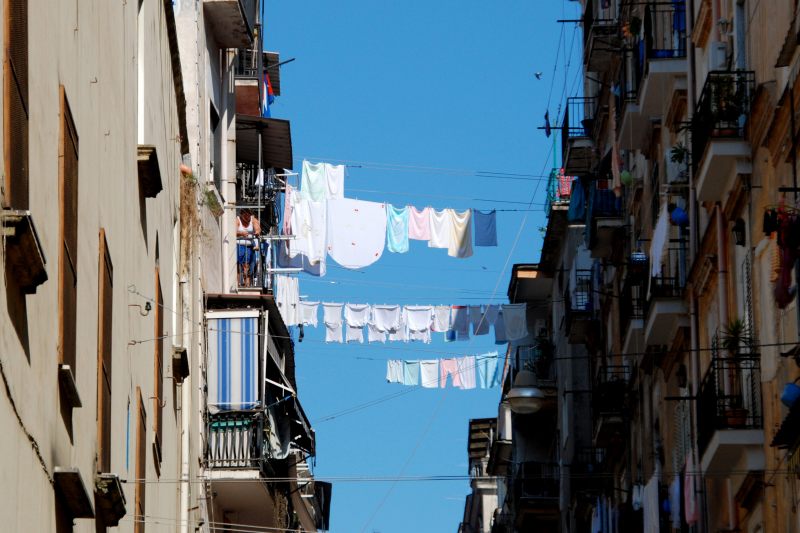
|
about
projects
papers
events
contact
|
YOU-DARE is a Horizon Europe project (2025-2028) which aims to advance an interdisciplinary programme to study and intervene on the gender constructions of far-right youth groups and leaders, and their normalisation in the mainstream. Among others, YOU-DARE establishes a Policy Lab as a collaborative platform for policy design, recommendation and implementation, which will be based on NetHood's Convivium platform.
SINCERE is a Horizon Europe project (2023-2026) for "The second life of modern period architecture: Resilient and adaptive renovation towards net-zero carbon heritage buildings". NetHood is the dissemination leader of the project, introducing the RSF concept in a new context with the aim to create an innovative platform of talking buildings around Europe.
EuComMeet was a Horizon 2020 project (2021-2024) that followed a Multi-stage, Multi-Level, Multi-Mode, Multi-Lingual and Dynamic Deliberative approach for deliberative processes, integrated with innovative technology related to automated moderation and automated translation in multiple languages to be implemented in 5 EU countries. NetHood developed the online deliberation platform, which was later branded as Convivium, and is further developed in the context of new projects and collaborations.
Cultures 4 Resilience (C4R) aimed to strengthen the action of a wide range of actors (citizens, professionals of the creative and cultural sector, public administrations, local associations) working on environmental and urban resilience issues. NetHood's role is the development of an RSF platform based on the blob software.
CROCHET was a knowledge exchange programme between Switzerland and Croatia (2019-2020) on the topics of cooperative housing, community centers, and municipal services. NetHood organized two research visits in Zurich around these topics summarized in two comprehensive reports.
Heteropolitics was an ERC Consolidator Grant (2017-2020), with PI Dr Alexandros Kioupkiolis from the University of Thessaloniki, explores among others how meaningful civic participation on various levels could be enhanced through institutional reforms which build on grassroots initiatives so as to promote social integration (including migrants). NetHood is working on community building activities from the point of view of social movements in Greece, focusing on knowledge exchange processes around two important common resources: housing and networking infrastructures. In this context, NetHood acts as a “knowledge broker” in two local projects (Cohab Athens, and Sarantaporo.gr Community Network), bringing knowledge through its participation in two other EU projects, MAZI (cooperative housing) and netCommons (community networks).
MAZI (meaning "together" in Greek), was a Horizon2020 CAPS project (2016-2018), which develops a DIY networking toolkit for enabling citizens to easily install and customize local wireless networks according to their own needs. The MAZI toolkit includes a wide variety of FLOSS applications can be deployed by anyone with basic computer skills in specific geographic locations in the city, accessible only to those inside the coverage of the network, creating a hybrid space that can be collectively designed and managed from those concerned, a MAZI Zone. NetHood led the Interdisciplinarity workpackage and the Zurich pilot in the Kraftwerk1 cooperative housing and living project, and coordinates the follow-up efforts documented at mazizone.net.
netCommons was a Horizon2020 CAPS project (2016-2018), which promotes and supports Community Networks as a sustainable and empowering paradigm for building networking infrastructures as a commons. The project brings together experts in engineering, computer science, economics, law, political science, urban, media, and social studies, and develops strong links with successful Community Networks like guifi.net, ninux.org, and sarantaporo.gr, promoting their cause through communication and dissemination activities, advocacy efforts, participatory processes, engineering and scientific contributions, and more. NetHood led of the dissemination workpackage and the tasks on participatory design of local applications and community currencies. It played a key role in the development of a novel participatory design and education process for the case of the Sarantaporo.gr Community Network.
COMPARE, was a small project funded through an Open Call of the EINS, Network of Excellence in Internet Science EU Horizon2020 project, with the objective to build a network of researchers and practitioners who have diverse understandings of the role the Internet can play in the self-organization of socio-technical and economic systems in different online and offline contexts. NetHood’s co-founders, Panayotis Antoniadis and Ileana Apostol, at that time senior researchers at ETH Zurich, were the coordinators of the project, which successfully created links between researchers and activists in the areas of DIY networking, cooperative housing and complementary currencies, that materialized in concrete collaborations, like the MAZI and Heteropolitics projects.
L200 is a collective initiative around a shared urban space in Zurich, which a group of associations present in the Kreis 5 neighborhood, including NetHood, aim to transform it into a hybrid urban living lab managed as a commons, responding to several local needs such as a) to meet fellow neighbors in a common space, b) to promote local shops, ateliers and initiatives, c) to network people, activities and places in both analogue and digital forms, and d) to facilitate collective learning processes on various topics. From NetHood’s perspective L200 is a spin-off of the MAZI and netCommons projects, recognizing the need of a permanent public, and centrally located space that can host a wide variety of participatory processes around technology, housing, collective learning, and more becoming in essence a reference point and real-life testbed for NetHood’s current and future projects.
ParLa (PARticipatory LAboratory) aims to network localities and to bring in touch people in proximity by organizing events in neighborhood places that catalyze a participatory process toward conviviality. Geographic locations today are part of the hybrid (physical and digital) space, and thus local networking means connecting places as well as people through both means. The purpose of the ParLa process is twofold. In the long term such deliberative participatory practices enable the formation of local networks, and initiate also social learning processes around neighborhood-relevant topics. At the same time, the methodology has a transdisciplinary research dimension that pertains to a phenomenological approach to hybrid (physical and digital) local networks, considering society and technology (artifact and attitude that makes it meaningful) as being each other's condition of possibility to be.
o500. In collaboration with Neustart Schweiz, NetHood contributes to the creation of a public repository of lessons learned by the Swiss model of cooperative housing, contributing texts for the Neustart Schweiz editions (e.g., Auf den Boden kommen) and organizing related events. For example, NetHood co-organized a nomadic knowledge-exchange workshop in Zurich, which led to a five day workshop in Venice Biennale in 2016, the official starting point of CoHab Athens.
7at7.digital, is an event series on digital empowerment taking place every 7th of the month at 7pm, at L200, in collaboration with ISOC Switzerland Chapter, pEp.foundation, Digitale Gesellschaft, and more.
CoHab Athens, is a research collective created in 2016. The main goal is to put in practice the diverse skills of its members (architecture, urban studies, anthropology, activism, interdisciplinary research) and collaborate both with local groups, like the Exarchia Residents Initiative Committee, and international organizations, like Mietshauser Syndikat, and Neustart Schweiz, to explore how different successful models of cooperative housing in Europe could provide inspiration for rethinking housing in Greece.
Openki is a project whose vision is to transform education to a collective learning experience of everyday life, self-organized, participatory, inclusive, and fun. It tries to do this through an open-source platform, https://openki.net, that facilitates the organization of collective learning processes, including the proposal of a subject of a course, finding mentors who can teach it, and looking for hosts who can provide a room for the course. NetHood was part of the group of people that develops the platform and the ideas around it, software engineers, designers, educators, facilitators, and helped to spread and develop the idea through its networks in Athens, London, and more.
elrepo.io: In this project funded under the Next Generation Search and Discovery grant, AlterMundi and NetHood collaborate to develop a critical missing part in decentralized and distributed p2p systems: content search.
Exarcheia Net was a neighbourhood Community Network in the Exarcheia neighbourhood of Athens, built as a reaction to the urgent need for Internet access in the various informal refuggee settlements created in this area. NetHood contributed infrastructure and lessons learned from CNs around the world and develops concepts useful to add a complementary local dimension to the community network, hosting local services and expanding its access network in popular public spaces. See a related article by the P2P foundation.
